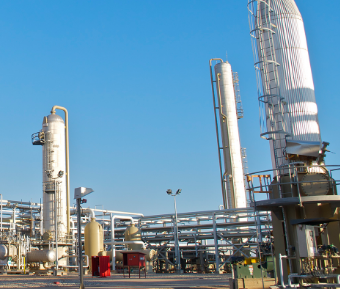
- The $250 million financing agreement will support the Khor Mor expansion project.
- Total project cost of $630 million to increase production capacity by 50% to 690 million scf/day from April 2023
Sharjah, UAE — Pearl Petroleum Company Limited (“Pearl Petroleum”), the consortium led by Dana Gas and Crescent Petroleum of the UAE, has signed a $250 million financing agreement with the U.S. International Development Finance Corporation (“DFC”) to support the gas expansion works currently under way at the Khor Mor gas plant in the Kurdistan Region of Iraq (KRI).
DFC is the development finance arm of the U.S government and proceeds from the 7- year DFC financing will support an increase in gas production capacity by 50% to 690 million standard cubic feet (scf)/day to meet rising demand for clean natural gas for electricity generation and industry in the KRI. The total project cost is $630 million and the remaining financing has already been secured through a regional bank facility and the EPC contractor.
The KM-250 project is the first stage of a two-train expansion project at Khor Mor that aims to boost total production capacity to approach 1 billion scf/day. Work resumed in April 2021 after onsite construction was halted last year due to the COVID pandemic and is currently on track for completion by April 2023.
Total investment by Pearl Petroleum at Khor Mor to date exceeds US$2.1 billion with total cumulative production of over 341 million barrels of oil equivalent (boe) in natural gas and liquids. The uninterrupted supply of gas to power plants in Erbil, Chemchemal and Bazian has resulted in significant fuel cost savings and economic benefits for the Kurdistan Region and Iraq as a whole.
The gas produced to date has enabled emissions savings of 42 million tonnes of CO2 by displacing diesel fuel in power generation in the KRI, thereby making a major contribution 2 to reducing greenhouse gas emissions and local air pollution in the region as well as supporting the transition to better energy sources to tackle global climate change.
Between 2018 and 2021, the Khor Mor Gas Plant also benefitted from a 45% production increase through an optimization of the facility bringing current total production to 106,000 barrels of oil equivalent per day (boepd). The project is today the largest regional private sector upstream gas operation in Iraq.
Mr. Majid Jafar, CEO of Crescent Petroleum and Board Managing Director of Dana Gas, commented: “This financing agreement with DFC underscores the importance of developing the natural gas resources in the KRI to support regional economic development and growth. Despite the global challenges presented by the COVID pandemic, we have continued to maintain our record of uninterrupted operations and even managed to grow production. The DFC agreement is a testament to our successful track record and further highlights the potential of these resources and the bright future for the KRI.”
Dr. Patrick Allman-Ward, CEO of Dana Gas, added: “With our partners in Pearl Petroleum we are proud to be further developing the gas sector of the Kurdistan Region of Iraq, delivering expanded supply of cleaner energy, and supporting local economic development. This agreement underscores our continued confidence in the region and its long-term prospects.”
Mr. Dev Jagadesan, Acting CEO of DFC, said: “DFC’s investment in the Khor Mor expansion will substantially increase access to energy for people all across the Kurdistan Region of Iraq. This highly developmental project represents the United States’ continuing investment in the KRI.”
In April 2007, Dana Gas and Crescent Petroleum entered into an agreement with the KRG for exclusive rights to appraise, develop, produce, market, and sell petroleum from the Khor Mor and Chemchemal fields in the KRI. Production from a newly built plant at Khor Mor began just 15 months later, in October 2008, an industry record. In 2009, Pearl Petroleum was formed as a consortium with Dana Gas and Crescent Petroleum as the majority shareholders, and with OMV, MOL, and RWE joining the consortium subsequently with a 10% share each.
Full-time staff at the operation number over 500, with over 85% local staff, including many in senior management positions. The companies have implemented a corporate social responsibility program to support local communities with equipment and supplies to deal with the COVID pandemic such as ventilators, sanitizers and protection equipment, in addition to a pledge to donate 100,000 vaccines to be administered in those local communities. This is in addition to ongoing support with local education, health and power supply as well as humanitarian aid for persons displaced from conflict zones as well as orphans. These initiatives assist the local communities in improving their standard of living, health, well-being, security and stability and the development of human capital.

